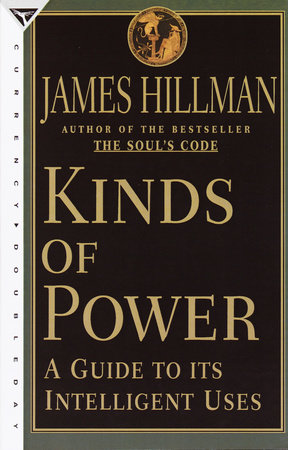Dr. David Van Nuys, aka “Dr. Dave” interviews Dr. C. Norman Shealy.
YOU MIGHT ALSO LIKE
CLEAR ALL
BY TOPIC
BY TEACHER
BY TYPE
FILTER

TOPIC
- Diet and Nutrition (22)
- Aging (21)
- Mind-Body Connection (20)
- Happiness (14)
- Neuroscience (14)
- Healthy Eating (11)
- Self-Discovery (11)
- Exercise (9)
- Stress (9)
- Meditation (8)
- Self-Healing (8)
- Athlete Well-Being (7)
- Awareness (7)
- Chronic Health Conditions (7)
- Honoring Emotion (7)
- Lifestyle Medicine (7)
- Neuroplasticity (7)
- Self-Care (7)
- Self-Development (7)
- Anxiety (6)
- Brain Health (6)
- Integrative Medicine (6)
- Belonging (5)
- Biohacking (5)
- Emotional Intelligence (EQ) (5)
- Mental Health Challenges (5)
- Positive Psychology (5)
- Psychoanalysis (5)
- Self-Actualization (5)
- Social Psychology (5)
- Trauma Healing (5)
- Connection with Nature (4)
- Depression (4)
- Finding Meaning (4)
- Illness and Injury (4)
- Imagination and Creativity (4)
- Inner Life (4)
- Negative Self-Talk (4)
- Neuropsychology (4)
- Nutritional Medicine (4)
- Resilience (4)
- Talk Therapy (4)
- Weight Concerns (4)
- Activism/Service (3)
- Addiction (3)
- Archetypes (3)
- Autoimmune Disease (3)
- Buddhism (3)
- Cancer (3)
- Chronic Pain (3)
- Community Healing (3)
- Empowerment (3)
- Energy Healing (3)
- Fellowship and Community (3)
- Gratitude (3)
- Growth Mindset (3)
- Habit Formation (3)
- Habits of Mind (3)
- Healing Approaches (3)
- Joy (3)
- Living with Illness (3)
- Memory (3)
- Mindfulness (3)
- Optimism (3)
- Personal Development (3)
- Psychological Approaches (3)
- Psychology and Spirituality (3)
- Self-Acceptance (3)
- Self-Love (3)
- Spirituality and Health (3)
- Stress Management (3)
- Women’s Well-Being (3)
- Young Adult Well-Being (3)
- Anger (2)
- Breathwork (2)
- Chronic Fatigue (2)
- Communication Skills (2)
- Consciousness (2)
- Empathy (2)
- Epigenetics (2)
- Fear (2)
- Forest Bathing (2)
- Friendship (2)
- Functional Medicine (2)
- Global Challenges (2)
- Holism (2)
- Human Potential (2)
- Immortality (2)
- Inflammation (2)
- Inner Peace (2)
- Intention (2)
- Kindness (2)
- Life Challenges (2)
- Loneliness (2)
- Mindfulness Meditation (2)
- Mindfulness Practices (2)
- Naturopathy (2)
- Philosophical Approaches (2)
- Positive Self-Talk (2)
- Relationship Challenges (2)
- Relationship with Time (2)
- Search for Purpose (2)
- Self-Control (2)
- Self-Realization (2)
- Self-Reflection Practices (2)
- Sex (2)
- Shame (2)
- Sleep (2)
- Taoism (2)
- The Feldenkrais Method (2)
- Transformation (2)
- Trauma (2)
- Work-Life Balance (2)
- Acceptance (1)
- Anger Management (1)
- Asking for Help (1)
- Authenticity (1)
- Awe (1)
- Ayurveda (1)
- Biofeedback (1)
- BIPOC Well-Being (1)
- Bodywork (1)
- Building Culture (1)
- Burnout (1)
- Changes in Libido (1)
- Child’s Emotional Growth (1)
- Climate Change (1)
- Cognition (1)
- Cognitive Behavioral Therapy (1)
- Cognitive Psychology (1)
- Compassion (1)
- Compassion Meditation (1)
- Confidence (1)
- Connection (1)
- Cross-Cultural Dynamics (1)
- Death and Dying (1)
- Death or Loss of a Child (1)
- Death or Loss of a Loved One (1)
- Death or Loss of a Parent (1)
- Dementia (1)
- Digital Life (1)
- Disabled Well-Being (1)
- Disconnection (1)
- Dream Analysis (1)
- Eating Disorders (1)
- Embodiment (1)
- Energy Balancing (1)
- Entrepreneurship (1)
- Facing Own Death (1)
- Fasting for Health (1)
- Fatigue (1)
- Female Empowerment (1)
- Fiction (1)
- Focus (1)
- Forgiveness (1)
- Freedom (1)
- Generosity (1)
- Genetics (1)
- Goal Setting (1)
- Grit (1)
- Guided Meditation (1)
- Handling a Loved One’s Illness (1)
- Highly Sensitive People (1)
- Hope (1)
- Identity (1)
- Imposter Syndrome (1)
- Indigenous Healing Approaches (1)
- Inner Strengths (1)
- Journaling (1)
- Ketogenic Diet (1)
- Leadership (1)
- Letting Go (1)
- Light Therapy (1)
- Love (1)
- Lovingkindness Meditation (1)
- Men’s Well-Being (1)
- Midlife Crisis (1)
- Moral Philosophy (1)
- Motivation (1)
- Mythology (1)
- OCD (1)
- Offering Support to Others (1)
- Parenting (1)
- Past Lives and Reincarnation (1)
- Perception (1)
- Play (1)
- Post-Traumatic Growth (1)
- Productivity (1)
- Regret (1)
- Relationship with Money (1)
- Reproductive Health (1)
- Rest (1)
- Retirement (1)
- Rolfing (1)
- Science and Spirituality (1)
- Self-Compassion (1)
- Self-Esteem (1)
- Self-Pressure (1)
- Self-Reliance (1)
- Self-Worth (1)
- Sexual Health (1)
- Sexuality (1)
- Social Justice (1)
- Social Media Addiction (1)
- Somatic Practices (1)
- Soul Mission (1)
- Spiritual Awakening (1)
- Spiritual Development (1)
- Spiritual Growth (1)
- Spiritual Healing (1)
- Spiritual Life (1)
- Spirituality and Politics (1)
- Subconscious (1)
- Tarot (1)
- Tibetan Buddhism (1)
- Trauma-Informed Therapy (1)
- Unconscious Bias (1)
- Veganism (1)
- Vegetarianism (1)
- Veteran Well-Being (1)
- Visualization (1)
- Vulnerability (1)
- Wholeness (1)
- Willpower (1)
- Work Challenges (1)
FILTER

TEACHER
- Dave Asprey (3)
- Lisa Feldman Barrett (3)
- Daniel Amen (2)
- Daniel Goleman (2)
- Deepak Chopra (2)
- Gabor Maté (2)
- Jane E. Brody (2)
- Jonathan Haidt (2)
- Sanjay Gupta (2)
- Sigmund Freud (2)
- Viktor E. Frankl (2)
- Anne Lamott (1)
- Arianna Huffington (1)
- Brynn Putnam (1)
- Chögyam Trungpa (1)
- Daniel J. Siegel (1)
- David Spiegel (1)
- Dilip Jeste (1)
- Dondi Dahlin (1)
- Ed Diener (1)
- Elaine Aron (1)
- Elson Haas (1)
- Eric Maisel (1)
- Geneen Roth (1)
- Ida Rolf (1)
- Jack Kornfield (1)
- James Baraz (1)
- Jessica Dore (1)
- Joan Borysenko (1)
- Joel Fuhrman (1)
- Joel Kahn (1)
- John Sarno (1)
- Kathy Freston (1)
- Kelly McGonigal (1)
- Kris Carr (1)
- Linda Graham (1)
- M. Scott Peck (1)
- Mantak Chia (1)
- Maria Sirois (1)
- Marie Forleo (1)
- Martin Luther King Jr. (1)
- Martin Seligman (1)
- Melanie Joy (1)
- Moshé Feldenkrais (1)
- Nicole LePera (1)
- Queen Afua (1)
- Ram Dass (1)
- Rich Roll (1)
- Rick Hanson (1)
- Sadhguru (1)
- William James (1)
- Yongey Mingyur Rinpoche (1)










